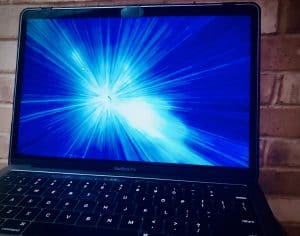 The team at DFINITY writes in an extensive update that in 2021, it was another solid year of developer and community growth on the Internet Computer.
The team at DFINITY writes in an extensive update that in 2021, it was another solid year of developer and community growth on the Internet Computer.
As noted in a blog post by DFINITY, 2021 marked the Internet Computer’s public launch, which “catalyzed an explosion of developer and community activity.”
The developers pointed out that in 2016, the DFINITY Foundation started on its mission to “realize the ‘world computer’ vision, which originated from the early Ethereum community.”
They added that as Bitcoin emerged as “digital gold” and Ethereum as the international settlement layer, Web3 still “needed a 100% sovereign world computer for decentralized compute and storage to realize its full potential.”
The founding of the Internet Computer initiatives was an “ambitious” undertaking by DFINITY founder Dominic Williams, who assembled more than 200 cryptographers, distributed systems engineers, and programming language experts to “tackle this massive challenge to build the most powerful general-purpose blockchain for Web3 dapps.”
As noted in the update:
“Five years later, 2021 was a hugely eventful year, marking the Internet Computer’s Genesis milestone and public launch — which catalyzed an explosion of developer activity and community growth within the Internet Computer ecosystem.”
To achieve this goal, the team reimagined blockchain “from the ground-up.” The Internet Computer is notably the first blockchain to “truly address the needs of unbounded scaling.” It is the first to “enable blockchain code to run at web speed,” the developers claim.
It is reportedly first to “enable blockchain code to serve HTTP requests, to securely serve web experiences directly to end users, and to incorporate permissionless governance into its protocols so that the network can autonomously and rapidly evolve.”
Other key innovations include “a reverse-gas model, where developers charge their canister smart contracts with cycles (aka, gas), and the Internet Identity authentication system, which allows users to anonymously interact with dapps and services running on-chain without the need to hold tokens or a cryptocurrency wallet.”
Since its Genesis launch last May, the Internet Computer has reportedly “created more than 446 million blocks, onboarded 412 nodes, and increased blocks per second by 600% to 30 bps.”
The community has deployed over 16,000 canister smart contracts to the blockchain, “ranging from full dapps to NFTs and more.” There have been more than 1.8 million transactions, and around half a million individual wallets “have been created.”
Total value locked (TVL) “stood at $9.7 billion staked in the Network Nervous System (NNS) DAO at the end of 2021, with over 25% of that value ($2.7 billion) staked for the 8 year maximum.”
Internet Computer storage costs are “currently no more than $5 per GB per year — cost comparisons to other layer-1 blockchain projects put storage costs for 1 GB of data at >$800,000 for Solana, and >$196.5M for Ethereum.”
The update further revealed:
“The Internet Computer also boasts higher speeds than comparative layer-1 solutions, servicing update calls within 2 seconds and supporting query calls within 200 milliseconds (or 0.2 seconds). By comparison, Solana processes update calls in 17 seconds, Cardano in 2 minutes, Ethereum in 15.”
The update also mentioned:
“We are collectively pursuing a vision of blockchain singularity that will eventually see most of humanity’s systems and services rebuilt on blockchain technology using smart contracts. Because blockchain code transforms the nature of software, systems and services built on the Internet Computer can be reimagined, just as DeFi reimagines finance.”
For more details on this extensive update, check here.

